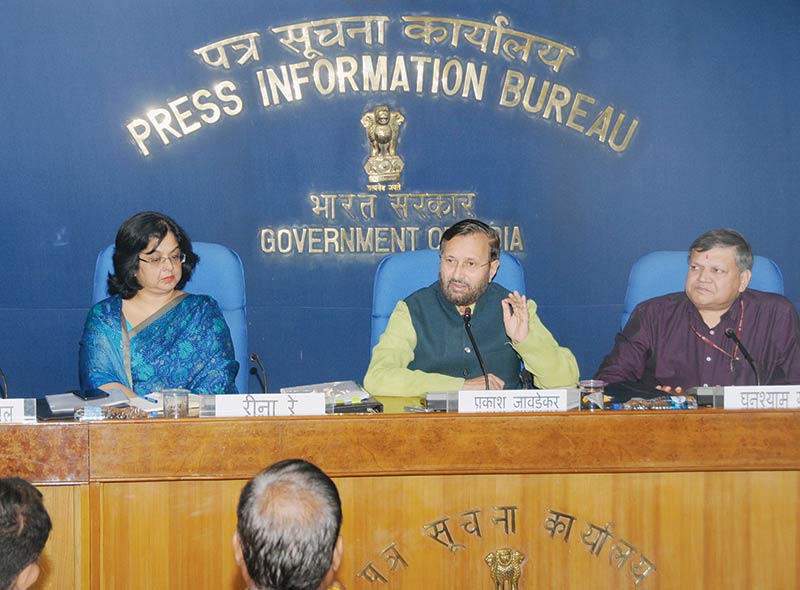Delhi: Overdue byelaws revision

After an interregnum of six years, the Delhi-based Central Board of Secondary Education (CBSE, estb.1962) — the country’s largest pan-India school examination board — issued revised affiliation and regulatory byelaws for its 20,299 affiliated schools in October.
Revision of the board’s byelaws (first notified in 1988 and revised in 2012) was ordered by its parent Union ministry of human resource development early this year to streamline the complex affiliation process that was a major nuisance for school owners. The number of CBSE-affiliated schools has been growing steadily from 10,000 in 2010 to 20,299 currently, a testimony to rising acceptance of its curriculum and certification.
“The new byelaws denote a major shift from the highly complex procedures followed earlier to a simplified system based on preventing duplication of process,” said Union HRD minister Prakash Javadekar, speaking at a function to mark the release of the byelaws on October 18.
Under the new regulations, once a no-objection certificate (NOC) for establishing a school is issued by a state government, it will not be demanded again and will be accepted as valid for purpose of affiliation with the board. “For issuing recognition under the RTE Act and NOC, the state education administration verifies various certificates to be obtained from local bodies, revenue department, cooperatives department, etc. The CBSE re-verifies them after applications are received. This is a very long drawn process. Therefore, to prevent this duplication, schools will now be required to submit only two documents at the time of applying for affiliation, instead of 12-14 documents being submitted earlier: one would be a document vetted by the head of district education administration validating all aspects such as building safety, sanitation, land ownership, etc, and another would be a self-affidavit where the school would certify its adherence to fee norms, infrastructure norms, etc,” says a statement issued by the HRD ministry. Since the entire process from application to inspection, to grant of affiliation was made digital in March 2018, under the new bye-laws as well, the entire process will be online with the affiliation application process completed within a year.
According to Ashok Pandey, principal of the CBSE-affiliated Ahlcon International School, Delhi, and former chairman of the National Progressive Schools Conference (NPSC), an association of CBSE schools, the revised affiliation byelaws are a reformist initiative. “For a very long time, the grant of affiliation has been on the basis of infrastructure, adequacy of qualified teachers, number of classrooms, library, playground etc. A school’s culture and learning outcomes were given no weightage. Moreover during inspection, two people had to rush through the school premises, labs, libraries, sports and cultural facilities in a few hours. The new byelaws are a division of labour between the local education authorities and CBSE. Local bodies ensure infrastructure maintenance and safety and hygiene, leaving CBSE to focus on improving learning outcomes,” says Pandey.
With the new affiliation byelaws authorising the state or local government to certify the adequacy and maintenance of infrastructure, CBSE inspectors will be freed to focus on issues of academic excellence, innovations, quality of pedagogy and teacher training, and report whether affiliation, whose pendency is three years, should be renewed.
Inevitably, some knowledgeable educationists believe that although CBSE’s new byelaws will reduce the paper work of affiliated schools, they go against the grain of liberalisation and greater autonomy for education institutions. According to A.T.B Bose, a long-time critic of CBSE, maths textbooks author and general secretary of the Association of Managements of Private Schools of Tamil Nadu, the new byelaws have “tightened the noose” on private schools by enhancing the discretionary powers of CBSE inspectors and could usher in a new era of “inspector raj” for schools affiliated with the Delhi-based exams board. “Divested of the function of inspecting compliance with infrastructure, CBSE inspectors will have more time to nit-pick on soft issues in which performance is difficult to measure. It could lead to extortion and increased corruption,” warns Bose.
Unquestionably the revised byelaws of the country’s largest pan-India and highly respected school-leaving examinations board which despite its government parentage is surprisingly well respected, are well intentioned inasmuch as they have sharply reduced paper work and process duplication. But whether it improves teaching-learning standards in affiliated schools will depend on the spirit with which they are implemented.
Autar Nehru (Delhi)














Add comment